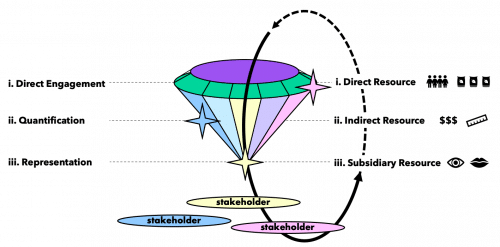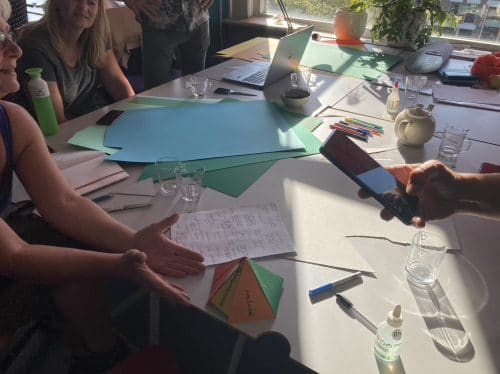It is not very straightforward to survive as an ECS (Edible City Solution) initiative under the immense cost pressure often found in urban settings. Whether or not an ECS initiative is a for-profit business or not, at the end of the day, financial sustainability is crucial in order to maintain impact and change the urban food system. That’s why, last year, the Norwegian NGO Nabolagshager hosted, in collaboration with other EdiCitNet partners, including the Borderstep Institute, an online interactive workshop called “Growing Jobs in Urban Agriculture”.
The workshop aimed to facilitate exchange among practitioners working on urban agriculture, researchers, policy-makers and aspiring entrepreneurs on a major challenge urban farmers are facing: the need to develop business models that are tailored to their community’s needs and the wants of their customers.
An interactive space was provided for participants to explore business models for urban agriculture, with 8 different sessions of 30 minutes each. The sessions were highly interactive with short sessions of knowledge transfer from experts in the field accompanied by space to work in groups through real-life cases. The goal was for participants to gain an in-depth understanding of how to develop their own business model for an urban agriculture enterprise.
This collaborative work paved the way for the creation of a new practical playbook called “Growing Jobs in Urban Agriculture”, a publication designed to allow existing ECS initiatives – and aspiring ones – to identify the necessary and sufficient conditions for economic and social success, and equip them with a tool to explore solutions and address the needs of their organisations.
This playbook follows the Edible City Solutions Canvas (ECS Canvas) tool, an upgraded and calibrated economically sustainable model Canvas for organisations that provide sustainable food solutions within the urban setting. Its predecessor, the Business Model Canvas, is a one page overview which informs how the key drivers of a business fit together. Here the ECS Canvas has taken into account the fact that not all ECS aim to be a ‘business’. This tool consists of 11 segments enabling readers to dive deep into various dimensions of achieving economic sustainability to maintain and expand their impact.
This publication is a useful resource for all ECS initiatives, organizations and entrepreneurs who are working to have sustainable impact on the food system. It is also a helpful tool for those working to help ECS initiatives towards this goal.
It is available now for download at the EdiCiNet Marketplace: www.edicitnet.com/biz




